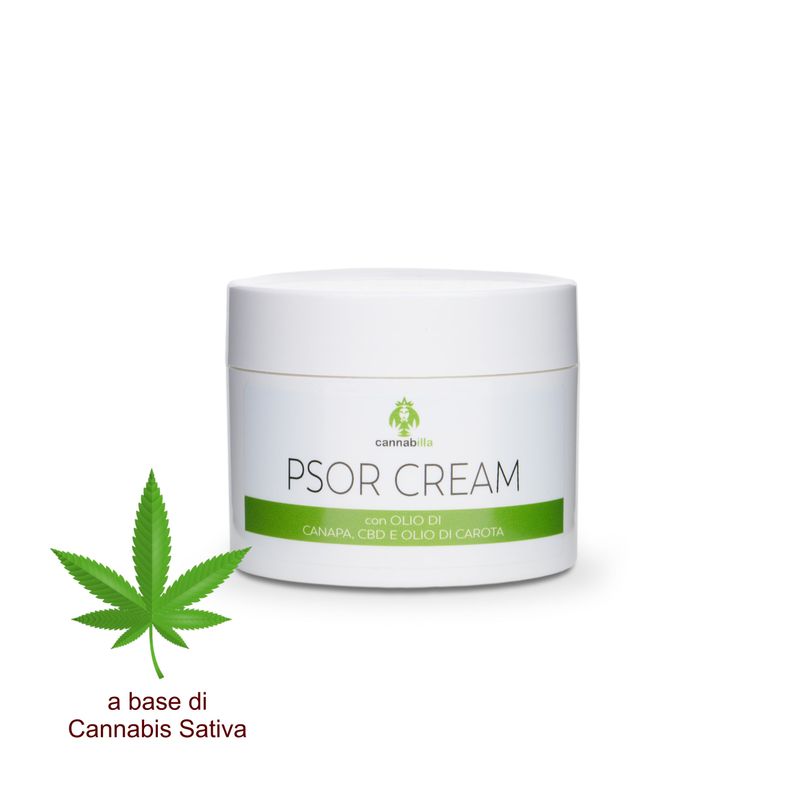SPEDIZIONE GRATUITA CON UNA SPESA MINIMA DI 20€
Conoscere la psoriasi: cause, sintomi e opzioni di trattamento
Psoriasis is a chronic inflammatory disease of the skin, in addition to the physical plane, it can have an impact on the psychological and relational level.
Psoriasis is an inflammatory, chronic, progressive and non-contagious skin disease. It tends to follow a cycle with acute phases following stress, trauma, surgery and in general in cases where the organism is weakened, and remission phases where symptoms are reduced.
The first symptoms are dry skin, red spots, burning and itching. The progression of the disease leads to the manifestation of very peeling red or white skin plaques, mainly located on knees, elbows and scalp. Symptoms of the condition may vary from person to person, depending on the severity and type of psoriasis.
Diseases of other organs, such as the heart or kidneys, are taken very seriously because they can be life-threatening. Skin, on the other hand, is sometimes not given much importance. Yet, the skin is the organ that most directly contributes to defining the body image and influencing social interactions.
Causes
The etiology of psoriasis is unknown, it is believed that at the base there is a genetic predisposition, but there are other environmental factors that can provoke the inflammatory response such as emotional stress, trauma, infections, drugs, obesity. The therapeutic modalities are mainly three: topical treatments, UV radiation treatments and systemic treatments. As we said initially psoriasis is a chronic disease, but with constancy and care you can keep under control and prevent relapses for a long time.
What to do then?
One of the factors related to chronic inflammation is stress, it can be the trigger or aggravate symptoms. In addition, people with psoriasis, due to their skin condition, may feel under pressure and uncomfortable, psoriasis alters the normal condition of the skin, causes itching and embarrassment in social relationships, effectively increasing stress: It triggers a vicious circle!
Therefore, it is essential to learn to prevent stress conditions and to adopt a holistic approach considering the organism as one and unique in its entirety: it is necessary to give proper attention to the psychological component by devoting oneself, for example, to the practices of meditation, as mindfulness, yoga, and regular physical activity, practicing a sport or simply doing outdoor activities help to relieve tensions and of course take care of your skin. This requires constancy and commitment, but instead of living this aspect as a duty, it should be seen from another point of view, that is the possibility to devote oneself to the care of one’s body on a regular basis.
The use of natural cosmetics allows you to relieve the skin condition and at the same time to give yourself a "cuddle", topical treatments for the milder forms include the use of emollients and moisturizers able to keep the skin hydrated and avoid peeling.
A good level of hydration gives the skin plasticity, elasticity and is an effective defense against external aggressions. According to recent studies, the essential mechanism of hydration is not so much to bring a greater amount of water to the skin, but to contribute to the maintenance of the water balance between the cells. This balance is more than 90% regulated by the amount of lipids present. In our article on the properties of hemp we had highlighted that hemp seed oil is not only considered an emollient, but a functional substance due to its high content in polyunsaturated fatty acids that have a fundamental role in the balance of cell membranes.
The CBD (cannabidiol) contained in the cannabis plant can be used in psoriasis treatments by exploiting its anti-inflammatory and antipruritic potential.
There are also many plant extracts that help to keep psoriasis under control such as hypericum (Hypericum perforatum), thanks to the anti-inflammatory activity of iperforine, but also for its antipruritic power.
The calendula (Calendula officinalis) are recognized emollient, soothing, refreshing and re-epitelizzanti. In addition to improving elasticity and skin trophism, calendula is indicated for the treatment of inflammation, eczema, to promote and facilitate the process of epithelialization. Thanks to its mucilage content, Calendula has a specific moisturizing, emollient, film-forming and protective action, in addition the oil extract contains phytosterols and triterpene alcohols with emollient and re-epithelizing action.
Carrot oil (Daucus carota sativa) is effective in the case of dermatitis, it contains provitamin A and beta carotene.
The chamomile (Matricaria recutita) is used for its antipruritic, healing and disarousing actions, thanks to the content of flavonoids at a topical level plays an anti-inflammatory action.
Essential oils, appropriately conveyed, can perform antiseptic and balsamic action, such as tea tree, eucalyptus and mint.
All the named plant extracts and many others, following extensive research and countless tests, have been incorporated into a unique formula, specially developed to find a remedy for skin conditions such as psoriasis and dermatitis, find out more in the detailed page dedicated to Psor cream
Bibliography:
Dictionary of phytotherapy and medicinal plants- Erica Campanini - Tecniche nuove
Display prices in:EUR

